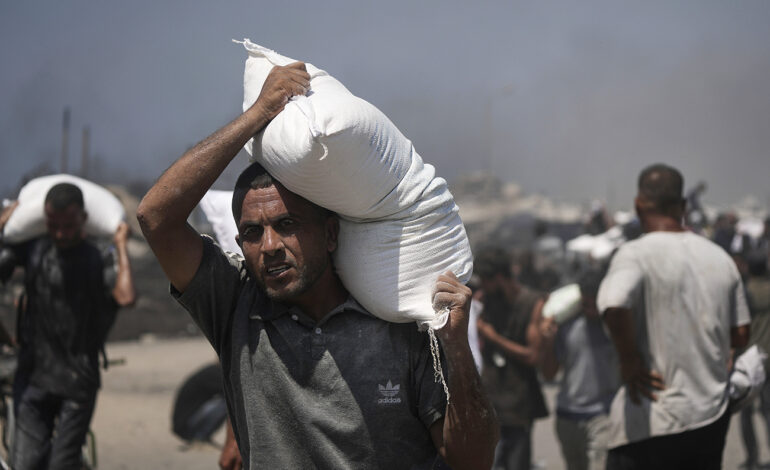Urgent Action Needed as Gaza Faces Imminent Famine Crisis

UPDATE: The humanitarian crisis in Gaza is reaching a catastrophic peak, with 2 million residents on the brink of famine. Urgent calls for immediate international action have been made as reports confirm escalating hunger and starvation among children.
The World Food Program revealed shocking statistics last week, indicating that one-third of Gaza’s population had not eaten for multiple days. The dire situation is exacerbated by the ongoing conflict that has left many without access to food and basic necessities.
This crisis is not due to natural disasters but rather a man-made catastrophe stemming from the violent clashes that intensified after the attacks on October 7, 2023. The realities on the ground are heart-wrenching, with small children dying of starvation at alarming rates.
The Gaza Humanitarian Foundation, in partnership with Israeli authorities, has attempted to distribute food from limited hubs, but warnings from international aid organizations about the dangers and inefficacy of this approach have proven accurate. Many are forced to traverse dangerous areas to access food, leading to increased violence and looting.
As Cindy McCain, head of the World Food Program, stated, “We need to change how we feed people.” The dire need for humanitarian corridors is critical to ensure safe and efficient delivery of aid. An immediate increase in hot meal production is essential, as these meals have low resale value, making them less susceptible to theft by armed groups.
The World Central Kitchen, which has provided over 133 million meals since the start of the war, is struggling to maintain operations due to severe ingredient shortages. Despite resilience from staff on the ground, the future of meal preparation remains uncertain.
“We are committed to cooking tens of thousands of meals each day,” said the organization’s founder. “However, we urgently need to ramp up to prepare one million meals daily. This requires additional large cooking facilities located in safe zones to ensure efficient distribution.”
Israel’s government claims that Hamas is diverting food supplies while asserting efforts to feed the Palestinian population. However, conditions on the ground depict a starkly different reality, with essential aid being looted and delivery trucks frequently encountering violence.
The blockade initiated in March has only intensified the suffering in Gaza, leading to widespread deprivation and the collapse of societal order. It’s imperative that all aid organizations are allowed to operate freely to alleviate the humanitarian crisis.
As the Jewish fast of Tisha B’Av approaches, a day of mourning and reflection, there is a poignant reminder that merely fasting is insufficient. The Book of Isaiah urges us to “extend our soul to the hungry,” a call to action that could not be more urgent.
The time to act is now. The world cannot afford to turn a blind eye to the suffering in Gaza. Human lives are at stake, and immediate solutions must be implemented to prevent a full-blown famine.
This crisis demands our collective attention and swift action. The question is, will we respond before it is too late?






